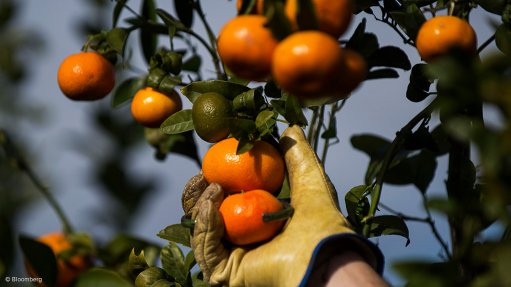
Photo by: Bloomberg
Industry association Agri SA on Thursday shared its view on how load-shedding has impacted on the agricultural sector.
Agri SA Centre of Excellence chairperson Nicol Jansen says Eskom’s implementation of Stage 6 load-shedding on Monday evening caught the South African economy off guard, especially during what is a busy time for producers and agribusinesses.
“Load-shedding has a negative impact on energy-intensive and irrigation-dependent agricultural industries, throughout the entire chain from farm gate to the consumer's home. The maintenance of the cold chain is critical to ensure food quality and shelf life.
The table grape and the fresh produce commodities are specific examples where load-shedding in peak season have dire consequences for agriculture,” he explains.
South African Table Grape Industry CEO Willem Bestbier notes that all packhouses and cold stores are dependent on electricity.
“The product is highly perishable and maintenance of the cold chain and a cold temperature regime form part of formal and legally binding international phytosanitary measures.
“Temperature breaks in phytosanitary shipment protocols can disqualify products for export and thousands of jobs and gross export earnings in excess of R7-billion at farm level are at immediate risk,” he points out.
Canning Fruit Producers’ Association CEO Jacques Jordaan mentions that fruit is currently in different stages of ripening and optimal water management is critical.
“Power outages have a direct impact on water management practices in orchards and, in many cases, water shortages cannot be corrected later.”
As a result, smaller fruits are produced, which results in loss of revenue for the entire fruit value chain.
The sources indicate that the agricultural industry is prepared to work with government to implement energy security plans for the benefit of the South African economy.
“We have a variety of green energy solutions in agriculture and would like to see Eskom work with us to diversify the generation opportunities, including solar and wind energy.”